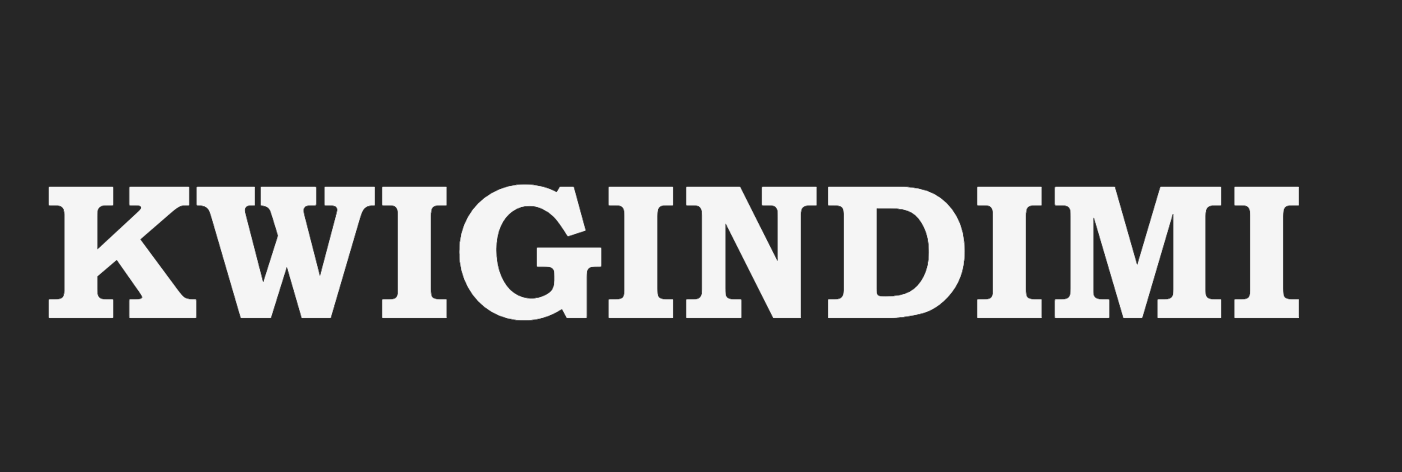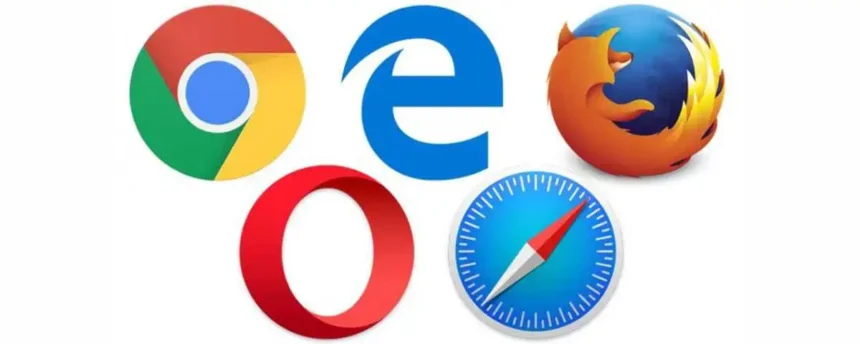In today’s digital landscape, selecting the best web browser is an essential decision for anyone who spends time online. From casual browsing to complex web applications, the browser you choose plays a critical role in your overall internet experience. With so many choices available, how do you determine which one is best suited for your needs? This post will dive into the top web browsers currently available, examining their features, performance, and reasons behind their popularity.
Whether you’re looking for speed, privacy, customization, or compatibility, understanding the strengths of various web browsers will help you make an informed choice. Let’s explore why these browsers continue to dominate the web and what makes them so attractive to users worldwide.
1. Introduction to Web Browsers
A web browser is a software application used to access the internet. It allows users to retrieve and display content from websites, search engines, and online platforms. The world of web browsers is incredibly diverse, offering various features to suit different types of users. From standard browsing to specific needs such as gaming, development, and business, the right browser can make a significant difference in your browsing experience.
When we think of browsing the web, we often think of platforms like Google Chrome, Mozilla Firefox, and Safari. These are just some of the most commonly used browsers today. However, there are numerous other web browsers that cater to specific user needs. Whether it’s for privacy, security, or speed, there’s a browser for every type of internet user.
2. The Evolution of Web Browsers
The journey of web browsers began in the early 1990s with the launch of the first graphical browser, Mosaic. This marked the beginning of an entirely new way to experience the internet. From there, web browsers continued to evolve. Netscape Navigator, Internet Explorer, and later Mozilla Firefox and Google Chrome helped define the way we interact with websites today.
Each browser release has brought innovation, faster load times, improved security, and better user interfaces. Over the years, browsers have become more sophisticated, integrating with various operating systems, developing mobile versions, and offering more features like extensions, tabs, and synchronization across devices. Browsers today not only render web pages but also serve as gateways to our online lives, managing our data, passwords, and even our browsing habits.
3. Top Web Browsers in 2025
Let’s take a closer look at the leading web browsers in 2025. While there are several choices, these browsers have emerged as the top contenders for different user needs:
Google Chrome
Google Chrome remains the most popular web browser worldwide. Its dominance can be attributed to its speed, user-friendly interface, and extensive extension library. Chrome is known for its fast page load times, robust security features, and seamless integration with Google services. This makes it the preferred choice for many users who rely on Google apps like Gmail, Google Docs, and YouTube.
Additionally, Chrome’s ability to sync data across devices—whether it’s bookmarks, history, or passwords—makes it a convenient choice for people who use multiple devices. However, the browser has faced some criticism for its heavy resource usage and potential privacy concerns, as Google collects data for advertising purposes.
Why Chrome is popular:
- Fast and efficient performance
- Great integration with Google services
- A vast library of extensions and apps
- Syncing capabilities across devices
Mozilla Firefox
Mozilla Firefox is another widely used browser known for its commitment to privacy and open-source development. Firefox offers a customizable user interface, powerful developer tools, and strong privacy features. It is an excellent choice for users who prioritize protecting their personal data. Firefox blocks tracking cookies and uses enhanced privacy settings by default, making it one of the best browsers for those concerned with online tracking and data collection.
In terms of performance, Firefox has come a long way, narrowing the speed gap with Chrome while maintaining its security features. Firefox is also known for its flexibility, allowing users to adjust settings and install various add-ons for different functions.
Why Firefox is popular:
- Open-source and community-driven development
- Strong privacy features, including ad-blocking and anti-tracking
- Customizable and user-friendly interface
- Extensive library of extensions and add-ons
Microsoft Edge
Microsoft Edge, once considered an underdog, has made impressive strides in recent years, gaining popularity among Windows users. Edge is built on the same Chromium engine as Chrome, which ensures fast browsing speeds and compatibility with Chrome extensions. However, Edge has improved upon Chrome by incorporating additional features like a built-in reading mode, better integration with Microsoft services (such as OneDrive and Office 365), and a focus on efficiency.
One of Edge’s standout features is its collection of unique privacy tools, including an enhanced tracking prevention system. For users already entrenched in the Microsoft ecosystem, Edge offers an excellent browsing experience, as it seamlessly integrates with Windows 10 and 11.
Why Edge is popular:
- Fast performance with the Chromium engine
- Enhanced privacy settings and tracking prevention
- Integration with Microsoft services
- Built-in features like reading mode and screenshot tools
Safari
Safari is the default browser for Apple users, and its popularity is most evident on macOS and iOS devices. Apple’s browser is designed to work seamlessly across all its devices, offering features like iCloud syncing, privacy protection, and smooth performance. Safari prioritizes battery life, making it the go-to choice for users with portable Apple devices like MacBooks, iPads, and iPhones.
Safari has gained a reputation for its speed and security features. With strong privacy protection, including Intelligent Tracking Prevention (ITP), Safari ensures that user data is not sold to advertisers or third-party companies.
Why Safari is popular:
- Optimized for Apple hardware
- Excellent battery efficiency
- Strong privacy and security features
- Seamless syncing across iOS and macOS devices
Opera
Opera, once considered a niche browser, has gained a loyal following due to its unique features and emphasis on customization. Opera comes with a built-in VPN, ad blocker, and cryptocurrency wallet, which makes it stand out from other browsers. The browser’s focus on security and privacy is evident, especially with the integrated free VPN service that helps users protect their identity while browsing.
Opera also offers a sidebar for quick access to social media platforms like Facebook, Twitter, and WhatsApp, making it a favorite among users who like to multitask.
Why Opera is popular:
- Built-in VPN and ad blocker
- Integrated access to social media apps
- Cryptocurrency wallet support
- High customization options
Brave
Brave is a relatively new player in the browser market, but it has rapidly gained popularity due to its unique focus on privacy and reward systems. Brave blocks ads and trackers by default, which not only improves privacy but also speeds up browsing. It offers a unique system where users can earn cryptocurrency tokens (BAT) by opting into privacy-respecting ads.
Brave’s commitment to user privacy and its reward system make it a great choice for users who are looking for an alternative to traditional advertising models.
Why Brave is popular:
- Blocks ads and trackers by default
- Cryptocurrency-based reward system (BAT)
- Focus on user privacy and security
- Faster browsing due to reduced tracking and ads
4. Key Features to Consider When Choosing a Web Browser
When selecting the best web browser, it’s important to consider various factors that impact performance, security, and user experience. Here are some of the key features to look for:
- Speed: A fast browser is essential for an efficient online experience. Look for browsers that load pages quickly and handle multiple tabs without slowing down your system.
- Privacy and Security: Consider browsers that offer robust privacy features, including ad-blocking, anti-tracking tools, and encryption for online data.
- Customizability: The ability to personalize your browser with extensions, themes, and settings is a significant advantage for many users.
- Cross-Platform Syncing: If you use multiple devices, it’s helpful to have a browser that syncs your bookmarks, tabs, passwords, and browsing history across all your devices.
- Compatibility: Make sure the browser you choose is compatible with the websites and online tools you use regularly.
5. How Web Browsers Impact Your Online Security
Your web browser plays a vital role in ensuring your online security. The majority of internet threats come from malicious websites, phishing attacks, and data breaches. Browsers that incorporate strong security features, such as HTTPS encryption, phishing detection, and secure password management, can help protect users from these threats.
6. Performance Comparison: Speed, Memory Usage, and Efficiency
When it comes to web browsers, speed, memory usage, and overall efficiency are critical factors. Chrome is known for its speed but often consumes more memory, especially with multiple tabs open. Firefox and Edge have made significant strides in optimizing memory usage without sacrificing speed. Safari, on the other hand, is highly efficient on macOS and iOS devices, providing excellent battery life and performance.
7. The Future of Web Browsers: Trends and Innovations
As technology continues to evolve, so do web browsers. In the coming years, we can expect further advancements in browser speed, security, and functionality. The integration of artificial intelligence, enhanced privacy controls, and more immersive web experiences are all on the horizon. Browsers will also continue to focus on mobile optimization as more users access the internet via smartphones and tablets.
8. Conclusion
Choosing the right web browser depends on your specific needs and preferences. Whether you prioritize speed, privacy, or customization, there’s a browser for you. Google Chrome remains the most popular due to its performance and compatibility with Google services, while Mozilla Firefox and Brave offer enhanced privacy features. Microsoft Edge and Safari continue to gain traction with their improved performance and seamless integration with their respective ecosystems. Opera, with its built-in VPN and social media features, appeals to those who want more control over their browsing experience.
Ultimately, the best browser for you is one that balances speed, privacy, and usability. As we move into the future, web browsers will continue to adapt to the changing needs of internet users, offering even more advanced features and a better online experience.

